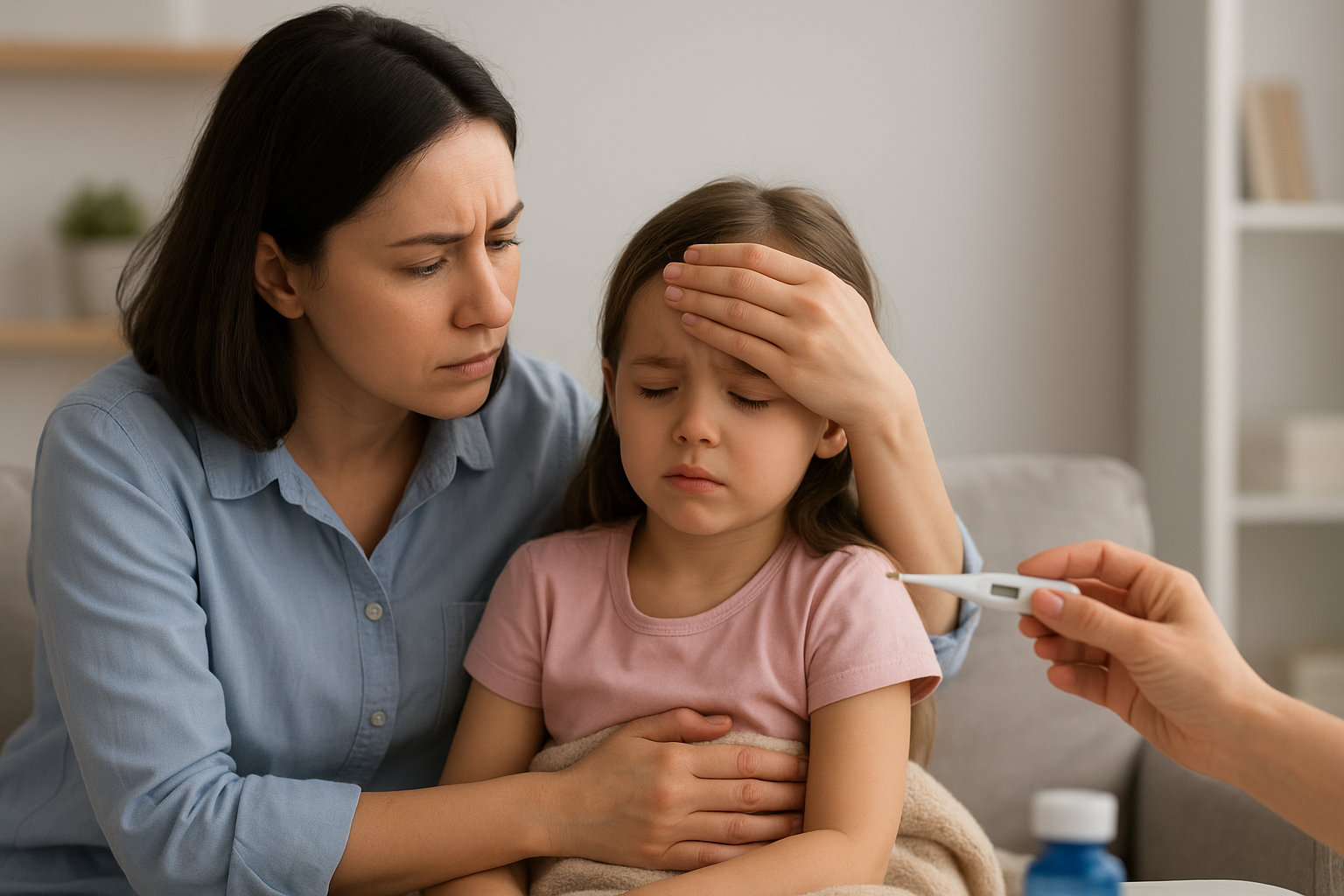Common Childhood Infections and How to Protect Your Child

Coughs, sniffles, and the occasional fever, every parent knows the drill. Childhood infections are simply part of growing up. While most are mild and easily treated, knowing what to expect can make all the difference. At Central Hospital Sharjah, we believe that awareness and early prevention are the first steps to a healthier childhood. With guidance from the Best Pediatrician in Sharjah, you can keep your little one safe, healthy, and thriving even during those “runny nose” seasons.
Understanding Childhood Infections
Children are natural explorers, touching, tasting, and sharing just about everything! This curiosity is part of learning, but it also means they’re more likely to pick up germs. Because their immune systems are still developing, kids are more prone to catching infections, especially in schools and daycare centers.
There are two main types of infections:
- Viral infections, like the common cold or flu, usually go away on their own.
- Bacterial infections, such as strep throat or ear infections, may need antibiotics prescribed by a doctor.
Knowing the difference helps you respond appropriately and avoid unnecessary medication.
Common Childhood Infections
1.Common Cold and Flu
Almost every child catches a cold multiple times a year. Typical symptoms include runny nose, sore throat, and mild fever.
2. Ear Infections
If your toddler tugs at their ear, cries during feeding, or has a fever, an ear infection might be the culprit.
Prevention tip: Breastfeeding and keeping your home smoke-free reduce the risk significantly.
3.Hand, Foot, and Mouth Disease (HFMD)
HFMD spreads easily through contact with contaminated surfaces or saliva.
Prevention tip: Encourage regular handwashing and sanitize toys frequently, especially during outbreak seasons.
4. Chickenpox
Those itchy, red spots are hard to miss! Chickenpox is highly contagious but preventable through vaccination.
Pro tip: The chickenpox vaccine is part of the routine immunization schedule one more reason to stay up to date.
5. Stomach Flu (Gastroenteritis)
Vomiting, diarrhea, and tummy pain are common signs. Watch out for dehydration dry lips, less urination, and lethargy are red flags.
Care tip: Offer oral rehydration solutions and avoid heavy foods until the stomach settles.
6.Strep Throat
If your child complains of a sore throat, high fever, and swollen neck glands, it could be strep.
Important: Always complete the antibiotic course prescribed by your doctor stopping early can lead to a relapse.
7.Respiratory Syncytial Virus (RSV)
RSV often causes mild cold-like symptoms but can be serious for infants and premature babies.
Preventive care: Keep babies away from crowded places during RSV season and ensure regular checkups.
How to Protect Your Child
- Vaccinations: Stick to the recommended immunization schedule. It’s your child’s strongest shield against many infections.
- Good Hygiene Habits: Handwashing before meals and after playtime, covering sneezes, and cleaning shared toys can go a long way.
- Healthy Diet and Sleep: A balanced diet rich in fruits, vegetables, and proper rest keeps the immune system strong.
- Avoid Exposure: If your child is sick, keep them home to recover and to protect others.
- Regular Pediatric Checkups: Routine visits to the Pediatrician in Sharjah ensure early detection and timely medical care.
When to See a Pediatrician
Not every sniffle needs a hospital visit, but watch out for warning signs like:
- High fever (above 39°C)
- Persistent cough or wheezing
- Unusual rash
- Signs of dehydration
- Excessive drowsiness or irritability
And remember self-medicating or giving leftover antibiotics can do more harm than good. Always seek professional advice.
Conclusion
Most childhood infections are mild, treatable, and, with a bit of care, preventable. As parents, your calm response, good hygiene practices, and regular check-ins with your pediatrician are key to keeping your child healthy.
At Central Hospital Sharjah, our team, including the Best Pediatrician in Sharjah, is here to guide you through every stage of your child’s health journey.

Leave a Reply